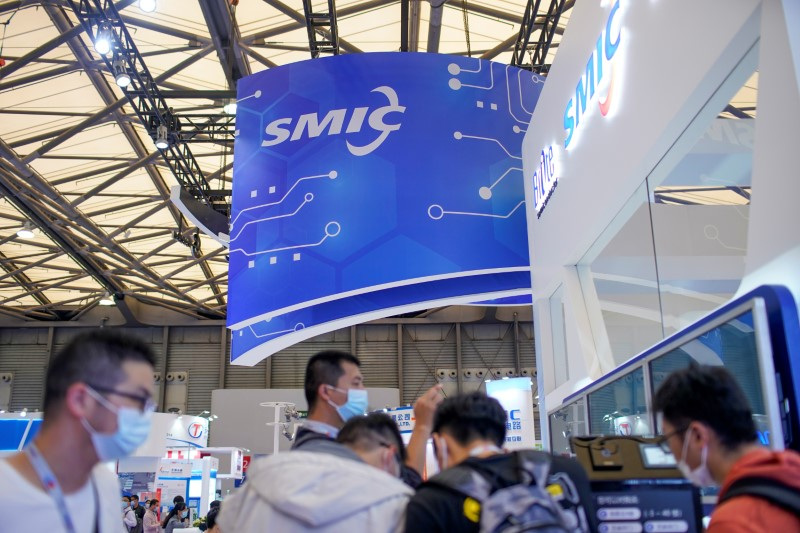China’s SMIC vows to avoid chip price war, beats estimates on earnings
2024.08.09 00:10
BEIJING (Reuters) -China’s Semiconductor Manufacturing International Corp said on Friday it will steer clear of a price war in the industry, and forecast current quarter sequential revenue growth of up to 15%.
Co-CEO Zhao Haijun, who had warned about the price war in May, said: “We have indeed encountered a situation where some of our peers with excess capacity are using low prices to attract customers.
“SMIC will not take the initiative to cut prices,” Zhao added in an earnings conference call on Friday.
Zhao said the industry was experiencing some favourable trends which will continue into the second half of the year. These included geopolitical tensions leading to companies switching to local semiconductor suppliers for the Chinese market.
SMIC forecast a 13% to 15% quarter-on-quarter revenue increase for the current quarter.
The company reported results late on Thursday that beat expectations.
For the three months ended June 30, SMIC reported $164.6 million in unaudited profit attributable to owners, topping the average $103.8 million expected by analysts polled by LSEG.
Revenue rose by 21.8% year-over-year to $1.9 billion, also beating forecasts and exceeding the guidance it provided on a quarter-over-quarter basis in May. However, net income tumbled by 59.1% year-on-year.
Capital expenditure was $2.25 billion in the quarter.
SMIC shares surged 7% in Hong Kong on Friday morning amid a broad market rally which lifted the benchmark index by 2%.
The results reflected signs of a recovery in the global semiconductor industry after a prolonged slump that began in late 2022.
Global semiconductor sales rose 18.3% to $149.9 billion in the second quarter, with the Chinese market growing 21.6%, according to the Semiconductor Industry Association.
While SMIC primarily produces basic chips for less sophisticated electronics, it gained attention after a Huawei smartphone teardown revealed a SMIC-made chip among the most advanced produced in China.

However, advanced chip production remains limited, constraining SMIC’s ability to fully capitalise on the artificial intelligence boom driving growth for some rivals.
Industry leader TSMC reported a 30% increase in second-quarter revenue, largely attributed to strong demand for advanced chips in AI and high-performance computing.







